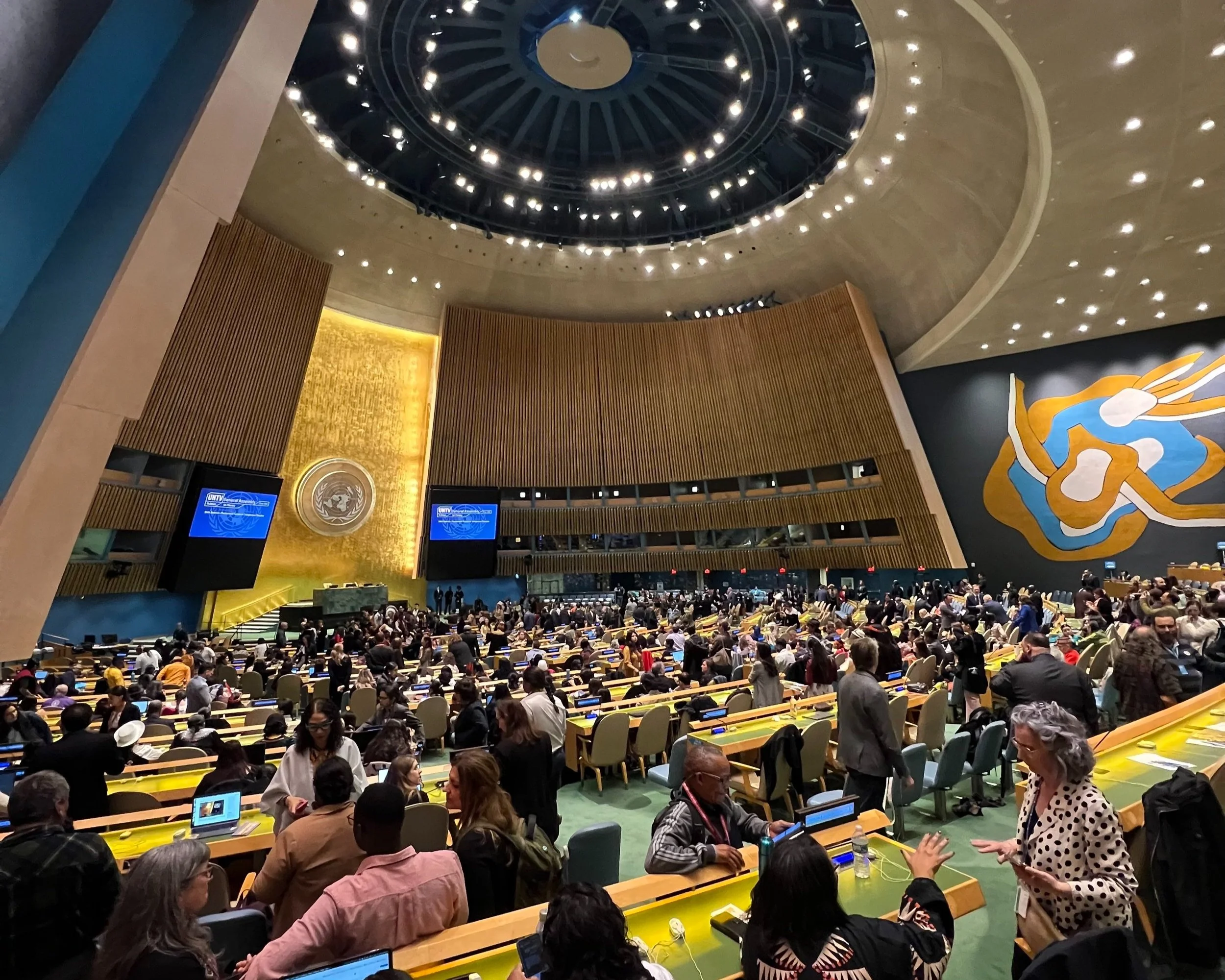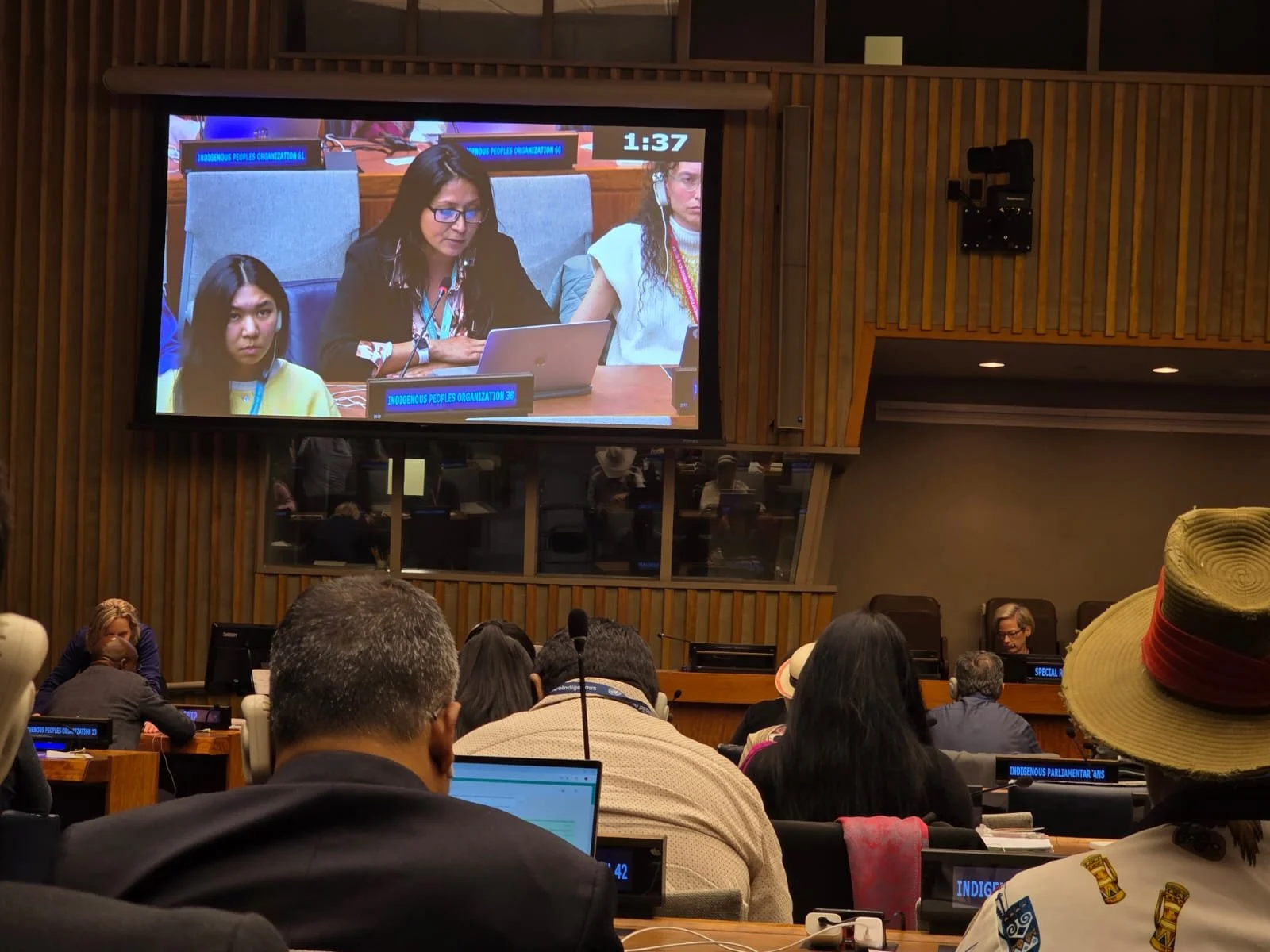A call for reflection: the representation of Indigenous Peoples at the UN Permanent Forum
Country Issue, Chile: Commission for Peace and Understanding. What do we do now?
May 16, 2025
Opening Ceremony of the 24th session of the United Nations Permanent Forum on Indigenous Issues / UNPFII April 21, 2025
1. The recent article published in the Opinion column from the online news portal BioBioChile.cl last Tuesday, May 13, 2025, titled, “Peace and Understanding Commission, What Do We Do Now?, authored by one of the current members of the United Nations Permanent Forum on Indigenous Issues (Chile), has raised deep concern for the organization “Images for Inclusion Inc”, an NGO with Consultative Status with the Economic and Social Council -ECOSOC- of the United Nations.
2. The statements of Mr. Rodrigo Paillalef Monnard, appointed for the period 2026–2028 as a member of the Permanent Forum, in relation to the report of the Commission for Peace and Understanding (CPPyE) in Chile, raises serious questions about his legitimacy and his real commitment to the rights and aspirations of Indigenous Peoples.
3. This situation is a source of concern, as the intervention by Mr. Paillalef Monnard, representing the Permanent Forum, constitutes interference in internal affairs. This is because the Permanent Forum has not mandated nor has it received an invitation to act in Chile, either from the Government or from Indigenous Peoples.
4. Mr. Rodrigo Paillalef Monnard, member of the Permanent Forum, has reportedly stated that the experience of a green economy, referring specifically to lithium extraction, has been a successful experience for Indigenous Peoples, as he did at a meeting of experts at the University of Colorado Boulder on January 23, 2024. Mr. Paillalef Monnard has a pro-business perspective on extractivism, which goes against the rights of Indigenous Peoples in relation to the dispossession of their lands, territories and natural resources
5. The final report of the CPPyE , has generated significant criticism regarding the process carried out by the Chilean government. This process is considered insufficient with regard to the right to consultation and participation of Indigenous Peoples. The main objection is that meaningful consultation that respects the right to Free, Prior, and Informed Consent of these Peoples was not carried out. Consequently, the content of the report, especially in the section that would be applied to their territories, lacks representation of all the actors involved.
6. This brings us directly to the analysis of the article “Commission for Peace and Understanding, What do we do now?”. The Permanent Forum member's statement that “a great part of the Mapuche world is once again placing its hope in the State,” – recognizing the right to express an opinion –It is, to say the least, questionable. Presenting this statement as a fait accompli, without any free, prior, and informed consultation with the Mapuche People favors a historically prioritized State perspective, ignoring the fundamental right to consultation, free, prior and informed consent of Indigenous Peoples in all matters affecting them.
7. Equally concerning is the recommendation issued in the Advanced Unedited Version of the Permanent Forum Draft Report, when the CPPyE agreement had just been announced (it took five days after that for the CPPyE final report to be formally presented to the president of Chile and to make it available to the public on a Government website). Although its contents were unknown until May 6 , the Advanced Unedited Version (E/C.19/2025/L.8) dated as of 1 May, 2025, within its recommendations to Member States, in paragraph 10, stated, the Forum “takes note of Chile's efforts to promote the rights of Indigenous Peoples through the Commission for Peace and Understanding" and "invites Chile to implement the recently reached agreement through the adoption of the necessary legislation and public policies, urging Chile “to replicate these positive developments with other Indigenous Peoples in its territory and to present progress at the 25th session of the Forum”. As an organization, we were unable to properly discuss this with Forum members because no one had access to either the Executive Summary or the Final Report of the CPPyE.
8. This recommendation's failure to address Chile's obligation to implement Free, Prior, and Informed Consent (FPIC) before, during, and afterward, is alarming. Consultation not only involves being informed, but also having the ability to agree or disagree with the recommendations. It is dangerous for the Forum to adopt an apparent internal interventionism without the request of Indigenous Peoples. While the Forum’s mandate is to provide expert advice and recommendations to the Economic and Social Council (ECOSOC), its mandate is also to promote respect for and the full application of the provisions of the UN Declaration on the Rights of Indigenous Peoples, as well as monitoring its effectiveness, raising awareness, disseminating information, and facilitating dialogue, which does not give it the right to act without consulting those the Forum represents.
Images for Inclusion head of delegation. Participant at the 24th session of the United Nations Permanent Forum on Indigenous Issues / UNPFII April 28, 2025
9. Finally, it is essential to provide appropriate time for Indigenous Peoples so they can access, read and analyze the agreements reached and proposals prepared in the final report of the CPPyE , which is a 115-page document containing the 21 recommendations recently submitted to the President of Chile. A meaningful and effective participation mechanism should be created for both, access to the information contained, and for consultation, especially for the Mapuche women and youth, traditional authorities and institutions representative of the Mapuche People. To achieve this, an inclusive, non-manipulative methodology is essential, that is, without being subject to deceptive or coercive influence tactics, with the aims to achieve the objectives of building and consolidating a long-term solution to the social-historical and territorial conflict of the Biobío, Araucanía, Los Ríos, and Los Lagos regions. This must be done before taking legislative and public policy measures. A path toward a new pact of coexistence, peace, and understanding must be based on international standards on the right to self-determination and political participation of Indigenous Peoples.
10. The organization Images for Inclusion calls on the Government of Chile to implement the right to Free, Prior, and Informed Consent of Indigenous Peoples, especially with regard to their specific rights, in accordance with international law such as the United Nations Declaration on the Rights of Indigenous Peoples and others. Furthermore, it requests the United Nations Permanent Forum on Indigenous Issues to review the attitude of Mr. Rodrigo Paillalef Monnard, a member of the Permanent Forum, who is acting unilaterally and harming the image and mandate of the Permanent Forum.
We appreciate your attention to this important observation.
Sincerely,
Lidia Arriagada Garcia
Below find the article regarding this matter, published on the Chilean Online news site:

